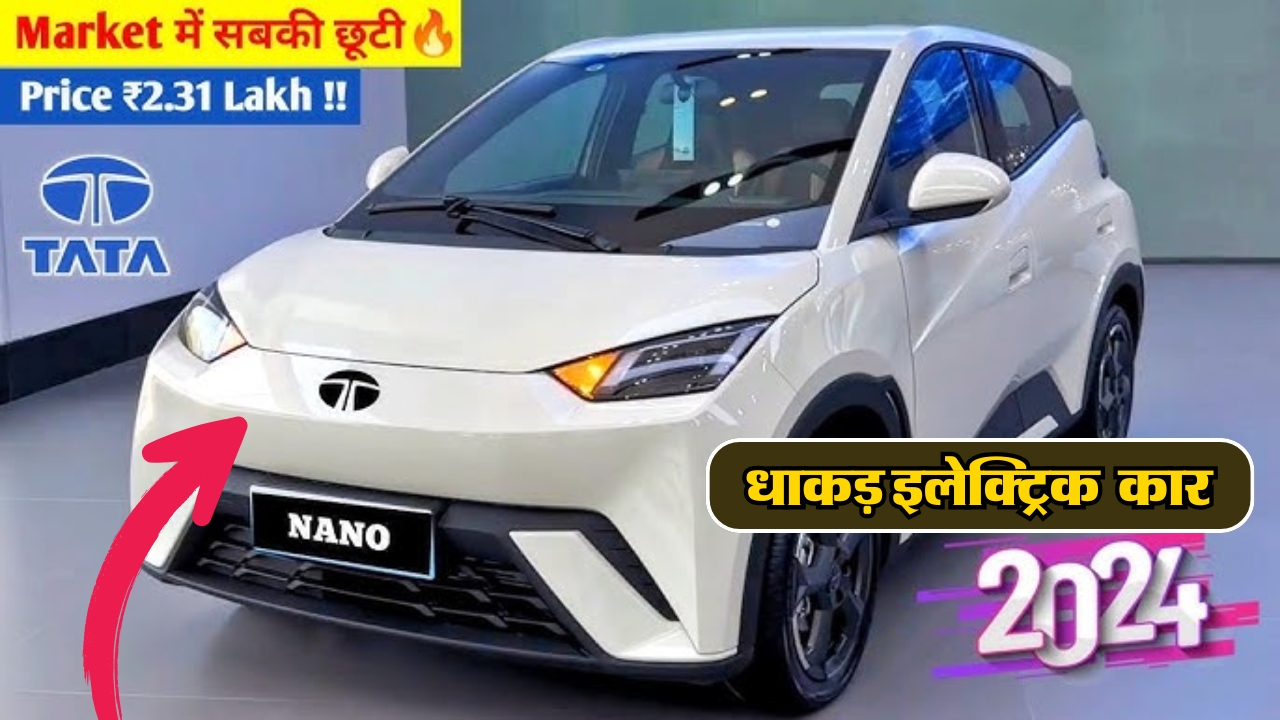Tata Nano EV: The iconic Tata Nano, once heralded as the world’s cheapest car, is preparing for a significant revival this time as an electric vehicle (EV). Ratan Tata’s vision of making car ownership accessible to the masses is set to evolve as Tata Motors gears up to introduce the
Tata Nano EV to the Indian market. This new electric version is expected to feature a robust single-charge range of up to 300 kilometers, aligning with the growing demand for affordable and sustainable transportation options.
A New Chapter for Tata Nano
Initially launched in 2008, the Tata Nano aimed to revolutionize personal mobility in India. While the car gained popularity for its affordability, it eventually faced challenges that led to a decline in sales and production halting.
However, with a renewed focus on electric vehicles, Tata Motors is looking to breathe new life into the Nano brand. The upcoming Tata Nano EV promises to combine the beloved aspects of its predecessor with modern electric vehicle technology, potentially attracting a new generation of buyers.
Impressive Range and Performance
Though Tata Motors has yet to disclose official specifications for the Nano EV, industry reports suggest that it will be powered by a 17 kWh battery pack. This configuration is expected to deliver a range of approximately 300 kilometers on a single charge,
making it suitable for daily commuting and short road trips. The performance of the Nano EV is also anticipated to be competitive, with a top speed ranging between 60 to 70 kilometers per hour, providing adequate power for urban driving.
The introduction of this electric variant positions the Nano EV as a direct competitor to other affordable electric models in the market, such as the MG Comet EV.
Tata Motors, already a leader in the Indian electric vehicle segment, aims to leverage the Nano’s legacy while catering to the rising consumer preference for eco-friendly transportation.
Feature-Rich Interior for Modern Drivers
The Tata Nano EV is expected to be equipped with a range of modern features that enhance both safety and convenience. Key anticipated features include:
Airbags: For enhanced safety in the event of a collision.
Adjustable Steering Wheel: Providing comfort and ease for drivers of varying heights.
Air Conditioning: Essential for comfort in India’s diverse climates.
Power Steering: Making it easier to maneuver the compact vehicle.
Air Quality Control: Ensuring a healthier cabin environment.
Rear Parking Camera: Aiding in parking and maneuvering in tight spaces.
Anti-lock Braking System (ABS): Improving vehicle stability and control during braking.
These features not only enhance the driving experience but also bring the Nano EV in line with contemporary expectations for safety and comfort in modern vehicles.
Competitive Pricing Strategy
While Tata Motors has not officially confirmed the pricing for the Nano EV, it is anticipated to be positioned competitively within the electric vehicle market. The MG Comet EV, for example, has an ex-showroom starting price of approximately ₹7.98 lakh.
Given the Nano’s historical reputation for affordability, the new electric variant is expected to come in at a more accessible price point, potentially making it one of the most affordable electric cars in India once again.
The Market’s Shift Toward Electric Vehicles
The resurgence of the Tata Nano in electric form comes at a pivotal time for the Indian automotive industry. As the government pushes for greater adoption of electric vehicles through various incentives and initiatives,
consumers are increasingly looking for eco-friendly alternatives to traditional combustion engine cars. The Nano EV could fill this niche, appealing to budget-conscious consumers who also want to make environmentally responsible choices.
The Tata Nano EV’s introduction could help Tata Motors further solidify its position in the EV market, as the company continues to expand its lineup of electric vehicles. With the success of models like the Nexon EV and Tigor EV, the Nano EV could leverage Tata’s established brand reputation and extensive service network.
A Sustainable Future for Urban Mobility
As urban areas grapple with pollution and traffic congestion, the demand for efficient, compact, and clean modes of transportation is more critical than ever. The Tata Nano EV aims to meet these needs by offering a practical solution for city dwellers who require a reliable vehicle for their daily commutes.
With a growing number of charging stations being established across cities, the feasibility of owning an electric vehicle is increasing. The 300-kilometer range of the Nano EV ensures that drivers can travel comfortably without
the constant worry of finding charging infrastructure. This practicality, combined with its affordability, positions the Nano EV as an ideal choice for new car buyers and those looking to transition to electric.
Looking Ahead: The Future of Tata Nano EV
The anticipation surrounding the Tata Nano EV reflects a broader trend in the automotive industry towards electrification and sustainability.
As Tata Motors prepares for the official unveiling of this new model, many will be watching closely to see how it captures the spirit of the original Nano while embracing the advancements of modern electric vehicle technology.
While specific launch dates and pricing details remain unconfirmed, the excitement is palpable. The Tata Nano EV could very well reinvigorate the brand’s image and fulfill Ratan Tata’s vision of making personal mobility accessible to all, now with an eco-friendly twist.
The Tata Nano EV stands at the intersection of affordability, innovation, and sustainability, making it a promising contender in the electric vehicle market. With its potential features,
impressive range, and cost-effective pricing strategy, the Nano EV is poised to redefine what it means to drive an electric car in India, reaffirming Tata Motors’ commitment to shaping the future of mobility.
